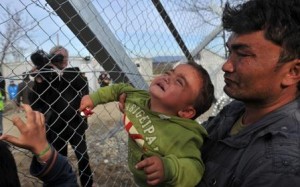Latest News
EU seeks to deport 80,000 Afghan refugees
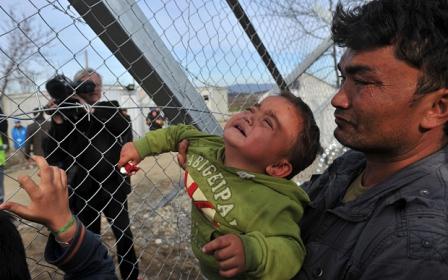
More than 80,000 Afghans will need to be deported from Europe “in the near future” under a secret EU plan, amid warnings of a new influx as parts of the country fall back under Taliban control.
The European Commission should threaten to reduce aid that provides 40 per cent of Afghanistan’s GDP unless the “difficult” Kabul government agrees to the mass removal of tens of thousands of failed asylum migrants, a leaked document suggests. It admits the threat, if carried through, could result in the collapse of the fragile state.
The Afghan elite will be rewarded with university places in Europe, under a new EU strategy to use aid and trade as “incentives” to secure deportation agreements for economic migrants from “safe” areas of Afghanistan.
The plan is revealed in a joint “non-paper” discussion document, marked EU Restricted, which was prepared by the European Commission and its foreign policy arm, the External Action Service, and sent to national ambassadors on March 3.
Record violence amid a Taliban insurgency, with 11,000 civilian casualties last year, and economic failure means there is a “high risk of further migratory flows to Europe,” it warns. There are 1.1 million internally displaced Afghans and 5.4 million sheltering in Pakistan and Iran, whose situation is “precarious without reliable long-term perspectives.”
In October, the European Union is hosting an international donor summit for Afghanistan, with the intention of raising enough aid for the period 2017-20 to keep flows at their current levels.
Jean-Claude Juncker’s officials propose using the summit as “leverage” to secure a deportation deal, noting that the EU has pledged more to Afghanistan than any other country with €1.4 billion earmarked until 2020.
“The EU should stress that to reach the objective of the Brussels Conference to raise financial commitments ‘at or near current levels’ it is critical that substantial progress has been made in the negotiations with the Afghan Government on migration by early summer, giving the member states and other donors the confidence that Afghanistan is a reliable partner able to deliver,” it says.
Under a section entitled “Afghan interests,” it says President Ghani’s government is “highly aid dependent”. “Without the continued high levels of international transfers… [it] is unlikely to prevail, as it is being faced by multiple security, economic and political challenges”.
Some 176,000 Afghans claimed asylum in the EU last year, with around six in ten eligible, a rate that has risen as the security situation deteriorates. They make up a quarter of refugees landing in Greece.
The paper, which was obtained by the Statewatch civil liberties website, says the EU’s co-operation with Afghanistan so far has been “difficult and uneven”. Despite President Ghani’s public statements, “other members of the Government do not appear to facilitate the return of irregular migrants, while attempting to re-negotiate conditions to restrict the acceptance of returnees.”
In exchange for accepting “forced returns” of economic migrants from designated “safe areas” of the country, European universities could offer places to Afghan students and researchers under the Erasmus+ scholarship scheme, the paper says, under a section entitled: “Possible components of EU incentives package”.
The document cautions, however, that “the risk that those students apply for asylum once in the EU and make their outmost not to return is however very high, as demonstrated by several cases recently.”
The CAPD development deal, which commits the EU to help in rural development, health, education and counter-drugs programs for a decade, could also be used as a bargaining chip to get a deportation agreement, the document says.
The EU will also provide training and healthcare to those who are deported.
It admits that identifying the safe areas of Afghanistan when processing asylum claims is “not obvious, given the rising insecurity in many provinces”.
The plan also suggests using the laissez passer, a legally controversial deporting document issued by the EU to migrants who have lost or destroyed their own papers.
The EU has publicly embraced a strategy of chequebook diplomacy as it struggles to contain the biggest migrant crisis since 1945.
The proposed deal appears similar to a gambit rejected by African leaders in Malta last year, in which the EU offered €1.8 billion in aid , university places and looser conditions for holders of diplomatic passports in exchange for accepting the forcible deportation of hundreds of thousands of African economic migrants. In the end, leaders settled on a voluntary scheme of returns.
It follows a controversial deal on Friday with Turkey, which was awarded €6 billion and visa liberalisation in exchange for the near-automatic return of all asylum seekers reaching the Greek islands.
Earlier this month Theresa May won a Court of Appeal case to resume deportations to Afghanistan under a separate arrangement. Judges ruled that while several provinces are dangerous, Kabul is safe enough for returns.
Germany, a major destination for Afghan migrants, is pushing hard for its own deportation agreement.
Source: Telegraph

Latest News
Eight schoolchildren among those killed in Pakistani airstrikes in Afghanistan
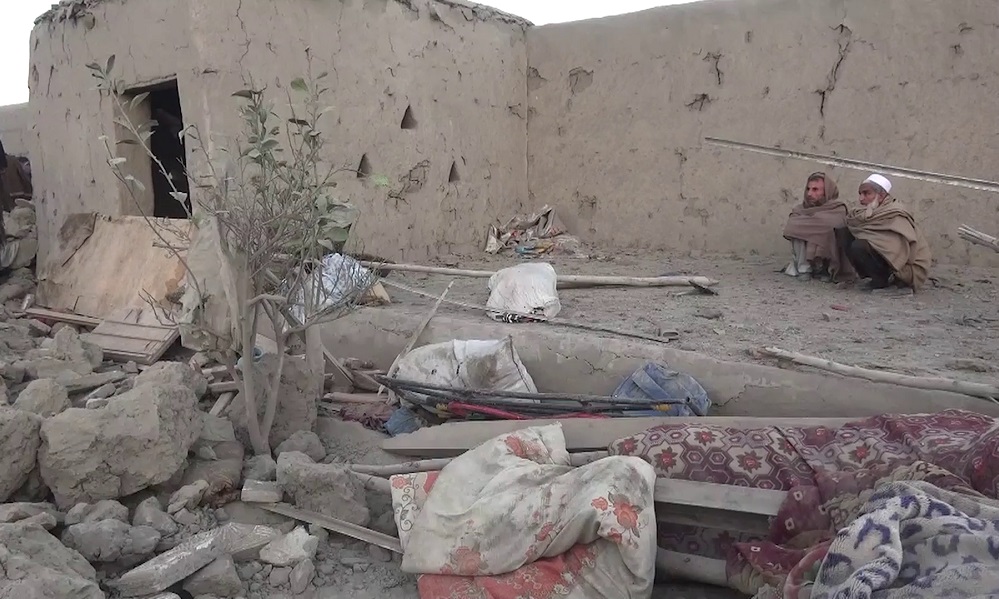
The Ministry of Education reported the tragic losses, highlighting the impact of strikes on civilians and students in the region.
Education Ministry spokesman Mansoor Ahmad Hamza also said that a student at a religious seminary was injured in Barmal district of Paktika province, another area affected by the Pakistani military attacks over the weekend.
Dozens of civilians have reportedly been killed or injured in the airstrikes, which Afghan authorities say targeted residential homes and community areas in both Nangarhar and Paktika provinces.
Local sources describe scenes of devastation, with families searching through rubble and emergency personnel rushing to rescue trapped individuals.
Afghanistan’s Ministry of National Defense condemned the strikes, saying they constitute a violation of Afghan sovereignty and have caused significant civilian harm.
Officials reiterated that Afghan territory must not be used for attacks against other countries and called for restraint and dialogue to prevent further escalation.
The strikes come amid ongoing tensions along the disputed Durand Line between Afghanistan and Pakistan, where security concerns and accusations of militancy have frequently strained relations between Kabul and Islamabad. Analysts note that repeated civilian casualties risk further inflaming regional tensions and complicating diplomatic efforts to reduce violence along the frontier.
Latest News
Russia estimates up to 23,000 terrorists present in Afghanistan

The Russian Foreign Ministry has estimated that around 20,000 to 23,000 fighters from various international terrorist groups are present in Afghanistan, contributing to ongoing security and political challenges in the country.
The ministry noted that over half of these fighters are foreign nationals.
Among the larger groups, Daesh is believed to number around 3,000, the Tehreek‑e-Taliban Pakistan (TTP) 5,000–7,000, and al Qaeda 400–1,500.
Smaller groups reportedly include the East Turkestan Islamic Movement (ETIM), the Islamic Movement of Uzbekistan (IMU/Turkestan Islamic Party), and Jamaat Ansarullah.
According to the ministry, Daesh remains the only group actively hostile toward the Afghan authorities, though it reportedly lacks the capacity to seize territory, focusing instead on undermining public confidence.
Afghan security efforts over the past 18 months are credited with significantly reducing attacks attributed to Daesh.
The Islamic Emirate of Afghanistan has consistently maintained that it will not allow Afghan soil to be used against any other country and continues to deny the presence of armed groups operating freely within the country.
Latest News
Afghanistan lodges complaint with UN over Pakistani airstrikes

Afghanistan’s acting representative to the United Nations has formally raised concerns at the UN Security Council following overnight airstrikes this week it says were carried out by Pakistan inside Afghan territory.
Nasir Ahmad Faiq, acting chargé d’affaires of Afghanistan’s mission to the UN, announced on Monday that a formal complaint had been submitted regarding the strikes, which reportedly resulted in civilian casualties.
In a statement posted on X, Faiq called for “the immediate cessation of such actions, a thorough and impartial review, full respect for Afghanistan’s territorial integrity, and strict adherence to the Charter of the United Nations and international law.”
According to Afghan officials, the strikes took place late Saturday night in eastern Nangarhar and south-eastern Paktika provinces.
Authorities say dozens of civilians, including women and children, were killed or wounded when residential areas were hit.
Islamabad has previously maintained that it reserves the right to act against militant groups it says operate near or along the disputed Durand Line. Afghan officials, however, have consistently rejected allegations that Afghan territory is being used to launch attacks against Pakistan.
The latest incident comes amid heightened tensions between Kabul and Islamabad over security concerns and cross-Durand Line militancy, further complicating already fragile bilateral relations.
-
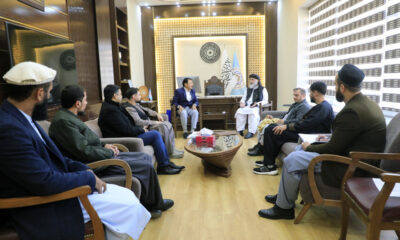
 Latest News4 days ago
Latest News4 days agoAfghanistan welcomes investment and technology partnerships with India
-

 Sport4 days ago
Sport4 days agoAfghan Peaks founder climbs Aconcagua to promote Afghanistan’s mountain potential
-

 Latest News3 days ago
Latest News3 days agoIndian customs seize Chinese walnuts falsely declared as Afghan
-

 Business4 days ago
Business4 days agoPakistan allows re-export of stranded Afghan transit cargo
-
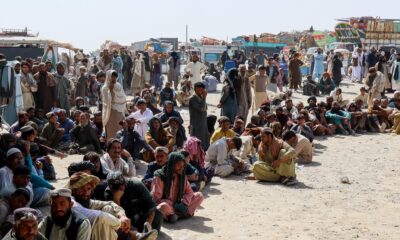
 Latest News3 days ago
Latest News3 days agoPakistan’s Punjab to send home 20 more Afghans in repatriation drive
-

 Latest News4 days ago
Latest News4 days agoPakistan signals possible air strikes as Kabul releases Pakistani soldiers in goodwill move
-
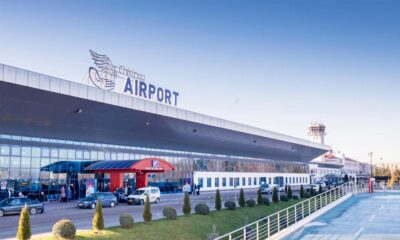
 Latest News2 days ago
Latest News2 days agoMoldova bans Afghan airlines over safety concerns
-
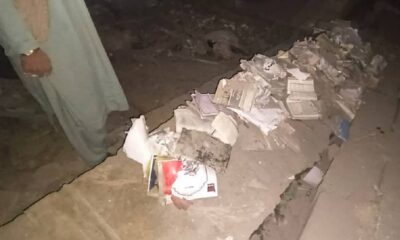
 Latest News1 day ago
Latest News1 day agoAfghanistan vows retaliation after Pakistan launches air strikes

